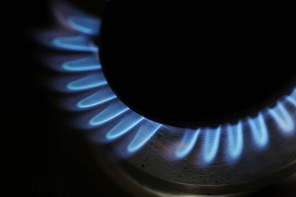
One of the ways the Gas Safe Register has decided to mark Gas Safety Week by launching the very first nationwide interactive gas map, which can be viewed at www.staygassafe.co.uk.
This map reveals just how many unsafe gas appliances have been found across the UK, how many gas-related accidents or emergencies have occurred and even how many unregistered gas fitters have been caught preying upon the public. It's the first time this level of information has been recorded and compared across postcodes, and the results aren't looking good for the capital of Wales.
Cardiff ranked second only to Birmingham as the area with the highest number of unsafe homes, at a total of 31.1%. The full top 10 (if you can call it "top" that is) of unsafe places in the UK can be viewed below:
1. Birmingham (34.2%)
2. Cardiff (31.1%)
3. Edinburgh (30.9%)
4. Norwich and Ipswich (27.9%)
5. Coventry (27.8%)
6. Manchester (27.5%)
7. Bedford (27.3%)
8. Glasgow (25.2%)
9. Milton Keynes (24.2%)
10. Bradford (23.3%)
While there may not be a whole lot in it between the places, these numbers are still significantly higher than they should be. So where did the research find is the safest places? Brighton took the prize with just 5% (1 in 20) homes found to be dangerous, followed closely by Liverpool (6%), Southampton (6%), Northampton (7%) and Hull (8%).
The data inspected just under 100,000 homes in Great Britain in the last three years, and found that one in six homes, the equivalent of 4.28 million households, had an unsafe gas appliance. Appliances in one in 25 homes were immediately dangerous and if left unchecked were at risk of causing a gas fire, explosion, leak or carbon monoxide poisoning.
One in three gas customers in Great Britain (around 7.69 million households) also admitted that they’ve never had their gas appliances checked or maintained, despite eight in 10 people (82%) recognising that it needs to be done to protect them from gas dangers. Gas Safe Register’s inspections further found that gas fires are the most dangerous gas appliances in homes. One in three gas fires checked by the Register were unsafe, compared to one in 11 boilers and one in 13 cookers. Just like boilers, gas fires and gas cookers need to be checked and maintained regularly to remain safe.
The public is also being caught out by cowboy unregistered gas fitters, pretending to be legal engineers. One in 10 people admit they took it on trust that their gas engineer is legally registered and never checked if they were. Nearly 3,000 illegal gas jobs have been investigated by Gas Safe Register since 2010, of which nearly two in three (61%) left victims’ homes unsafe and one in five were so dangerous that the Register had to turn off the gas appliance immediately.
Russell Kramer, chief executive for Gas Safe Register, said: "Gas safety is a life or death matter and something that shouldn’t be ignored. People are aware of the potential risks of unsafe gas work and they know what they should be doing to keep themselves safe, but as our research has found, not everyone is acting on that information. This is why we have launched the gas map. It is the first time that data on unsafe gas appliances and illegal gas work has been compared across postcodes in Great Britain. We want people to realise that gas safety is something that they should take seriously and by bringing it to their doorstep it makes it harder to ignore.
"We hope to see millions of people using the gas map during and beyond Gas Safety Week to get a better understanding of how they can protect themselves. Some areas are more at risk, but even in safer areas there is no room for complacency. You only need to enter your postcode to find out localised information about your area. You can also sign up for a free reminder service to get your appliances checked, so that you don’t forget to do this vital and life saving check every year, and search for registered engineers. Our messages this Gas Safety Week are simple – get your appliances checked every year, sign up for our reminder service and only use a Gas Safe registered engineer. It could save yours and your family’s lives."
If you're a Cardiff gas engineer, its up to you to help lower this figure and get our city off of the table. Meanwhile, if you're a trainee gas engineer or looking to enter the gas trade, it is essential that you not only get the right qualifications, but get Gas Safe registered so that you are legally permitted to work on gas appliances and installations across the UK. An Access Training gas course will provide you with everything you need - expert tutelage, professional qualifications and the best foundation work possible for you to go on and become Gas Safe. To find out more take a look at our courses page or contact one of our team on 0800 345 7492.